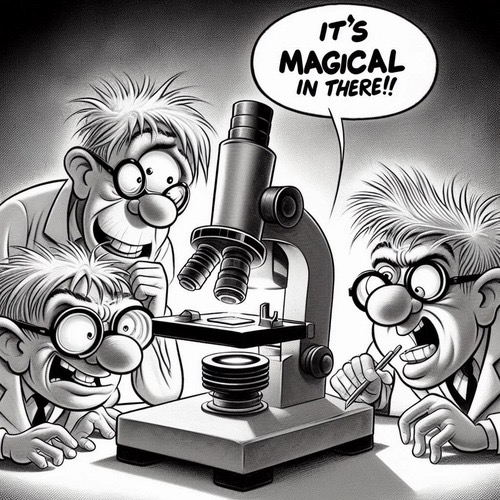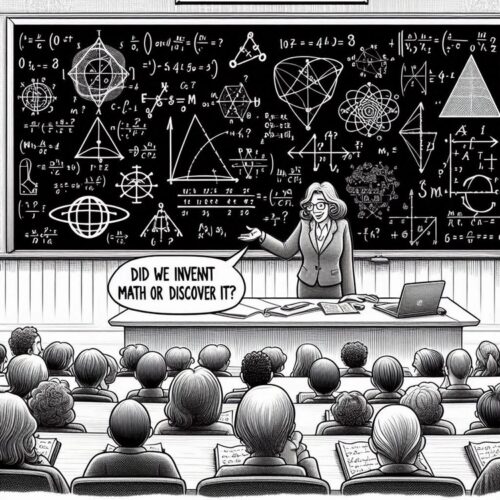5 Atonement Theories: Can Any Surpass Penal Substitution?
What exactly happened when Jesus died on the cross? Understanding the atonement—how Christ’s death accomplishes salvation for us—is far more than an academic exercise. It strikes at the very heart of the Christian faith, revealing the depths of God’s love and the intricate plan of redemption.
As we explore these five theories of atonement, we discover this isn’t merely a theological debate, but an investigation into the most significant event in human history.
HISTORICAL CONTEXT OF ATONEMENT THEORIES
The church has long wrestled with the profound mystery of Christ’s sacrificial work. From the earliest days of Christianity, people have sought to comprehend how the death of one man could potentially save humanity from sin. The quest isn’t about diminishing the miraculous nature of salvation, but about understanding the incredible love and justice of God.
The biblical narrative demands we look deeply into the matter. The apostle Paul writes in 2 Corinthians 5:21, “God made him who had no sin to be sin for us, so that in him we might become the righteousness of God.” This statement invites careful theological reflection.
5 ATONEMENT THEORIES EXAMINED
- Moral Influence Theory: This theory suggests Christ’s death primarily serves as a moral example, inspiring us to turn from sin and embrace God’s love. Its proponents argue Jesus’ sacrifice demonstrates God’s love so powerfully it transforms human hearts. However, this view falls critically short. While Christ’s sacrifice does reveal God’s love, it reduces the atonement to mere moral inspiration. It fails to address the fundamental problem of sin’s judicial consequences and God’s holy justice.
- Ransom Theory: Some early church fathers developed the Ransom Theory: this view suggests Christ’s death was a ransom paid to Satan. They viewed Christ’s life as a payment to free humanity from Satan’s legal claim. While dramatic, the theory problematically grants Satan more power than Scripture suggests and fails to fully explain the nature of Christ’s sacrifice.
- Satisfaction Theory: Developed by Anselm of Canterbury, the Satisfaction Theory approached the atonement through the lens of divine honour. It suggests human sin dishonours God, and Christ’s perfect sacrifice satisfies the dishonour. While more sophisticated than the previous theories, it still does not fully capture the depth of biblical atonement.
- Governmental Theory: This theory suggests Christ’s death demonstrates God’s hatred of sin and provides a moral basis for forgiveness, without requiring a literal punishment. While providing some insights, it ultimately fails to fully address the biblical concept of substitutionary atonement.
- Penal Substitution Theory (The Reformed Perspective): Here we arrive at the most biblically robust understanding of the atonement. The Penal Substitution Theory recognises sin is fundamentally a legal and relational problem between humanity and our holy God. God’s justice requires punishment for sin and Christ takes the full penalty of human sin upon himself. He acts as a perfect substitute, representing humanity before God. His sacrifice satisfies divine justice while extending divine mercy.
PENAL SUBSTITUTION: A COMPREHENSIVE VIEW
Biblical Foundation: Scripture provides overwhelming support for this view. Isaiah 53:5-6 prophetically declares, “He was pierced for our transgressions, he was crushed for our iniquities… and by his wounds we are healed.” The apostle Peter echoes this, stating Christ “bore our sins in his body on the tree” (1 Peter 2:24).
Christ’s work involves both His active obedience (perfectly keeping God’s law) and His passive obedience (suffering the penalty for our law-breaking). As our federal head, He represents humanity, taking our place completely.
The Penal Substitution Theory stands above other atonement theories because it:
- Most closely aligns with Scripture
- Maintains the holiness and justice of God
- Fully explains the comprehensive nature of redemption
- Demonstrates God’s love without compromising His righteousness
Practical Implications
Understanding the atonement isn’t just an intellectual exercise. It transforms how we view:
- Our relationship with God
- The seriousness of sin
- The incredible love demonstrated on the cross
- Our daily walk of faith and repentance
When we grasp Christ took our specific sins upon himself, bearing the full weight of divine judgement, it produces profound gratitude, genuine repentance, radical dedication to God and compassion for those still under sin’s bondage. FOR MORE ON PENAL SUBSTITUTION, CHECK OUT OUR POST:
CONCLUSION
The atonement remains a profound mystery—not because it’s unclear, but because it’s so deeply wonderful. Christ’s work reveals a God who is simultaneously just and merciful, holy and gracious.
As we reflect on these truths, may our hearts be drawn to worship. The cross is the ultimate demonstration of God’s love, where justice and mercy embrace, where divine holiness and human brokenness find reconciliation.
5 ATONEMENT THEORIES: RELATED FAQS
Does the doctrine of atonement mean God the father killed Jesus? No, the Reformed understanding emphasises the Trinitarian nature of salvation, where the Father, Son, and Holy Spirit are unified in the redemptive plan. Christ voluntarily laid down His life as a perfect act of obedience, willingly taking on human flesh and choosing to bear the penalty of sin. This was a cooperative, loving act within the Godhead, not a violent rejection by the Father.
- How can one person’s death pay for all human sin? The efficacy of Christ’s atonement stems from His infinite worth as the divine-human mediator. Because Jesus is both fully God and fully human, His sacrifice has unlimited value, capable of covering the sins of all whom God has chosen. His perfection and identity as the second Adam allows His substitutionary work to be sufficient for the entire elect.
- What about people who never hear the gospel? Reformed theology maintains God’s sovereign election determines salvation, and Christ’s atonement is applied precisely according to God’s perfect divine purpose. While we are commanded to spread the gospel, the ultimate determination of salvation rests with God’s mysterious but just electing grace. This preserves both human responsibility and divine sovereignty.
Is atonement automatic for everyone? Christ’s atonement is sufficient for all but efficient only for those whom God has elected to salvation. This means the redemptive work is universally offered but specifically applied only to those who respond in faith. This understanding highlights both God’s universal love and His particular redemptive work.
- How does Christ’s atonement affect my daily life? The doctrine of atonement provides profound comfort and motivation for Christian living. Knowing that Christ has fully satisfied divine justice allows believers to live in freedom from condemnation, while simultaneously motivating radical obedience and gratitude. It transforms our understanding of sin, grace, and our relationship with God.
- Can we lose our salvation after Christ’s atonement? Reformed theology affirms the doctrine of perseverance of the saints, which teaches that those truly regenerated by God cannot ultimately fall away. Christ’s atonement guarantees the complete salvation of those God has chosen, securing their eternal redemption. This provides deep assurance of God’s preserving grace.
Why did Christ’s atonement require such suffering? The intensity of Christ’s suffering reveals the profound seriousness of sin and the immeasurable depth of God’s love. Each aspect of Christ’s passion—physical pain, spiritual abandonment, and divine judgement—demonstrates the comprehensive nature of sin’s destructive power and God’s commitment to redemption. His suffering was no accident, but a deliberate, planned act of cosmic restoration.
5 ATONEMENT THEORIES: OUR RELATED POSTS
Editor’s Pick

More than Conquerors: Gospel Victory in Fighting Temptation
THE FALL, THE CONSEQUENCES, THE DELIVERANCE The story of temptation is as old as humanity itself. In the perfect garden [...]

Why Didn’t Jesus Come Before Noah’s Flood? God’s Perfect Timing…
Why Didn’t Jesus Come Before Noah’s Flood? Salvation-wise, How Does It Matter? When considering the timing of Christ’s incarnation, we [...]

What Roles Do Angels Play In God’s Providence? What The Bible Teaches
What roles do angels play in God's providence? When we think of angels, our minds often drift to romanticised images [...]

Satan’s Lie Exposed: Is God Egotistical To Demand Our Worship?
Satan first planted this destructive seed of doubt back in the garden of Eden. His original lie, whispered to Eve [...]

Living With Biblical Integrity: Puritan Wisdom For Our Times
Picture for a moment the desk of a Puritan divine: a worn Bible, carefully annotated; a journal recording daily self-examination; [...]
What Does it Mean to Love Jesus More than Family? The Surprise Answer…
In Matthew 10:37, Jesus makes one of His most challenging statements: "Anyone who loves their father or mother more than [...]

Meeting Jesus in Glory: Will He Have a Physical Body?
It’s a question we’ve all thought of at some point: What exactly will we see when we finally meet Jesus? [...]

The God Equation: Quantum Physics and the Evidence for Design
Quantum Physics and the Evidence for Design Few areas of science are as intriguing—even perplexing—as quantum mechanics. It explores the [...]
Does Math Reveal the Mind of God? The Divine Design in Numbers
When Galileo declared mathematics is the language in which God wrote the universe, was he merely waxing poetic? Consider this: [...]

What Does It Mean To Be God’s Temple?—A Biblical Deepdive
The magnificent temples of the ancient world stood as monuments to divine presence—grand structures of stone and gold where heaven [...]







